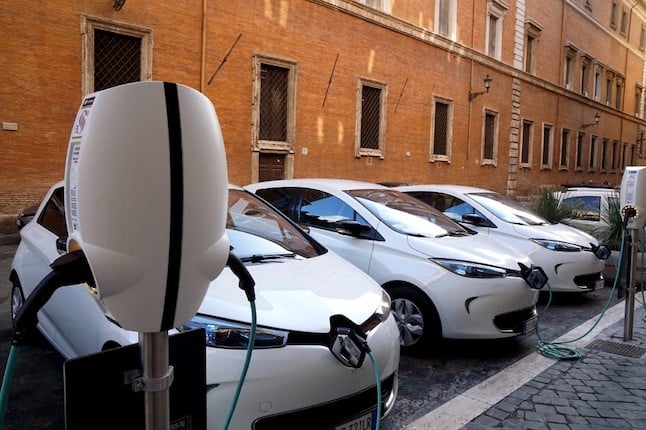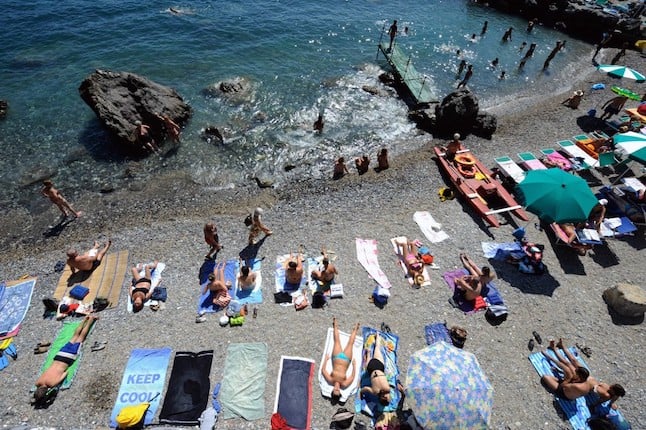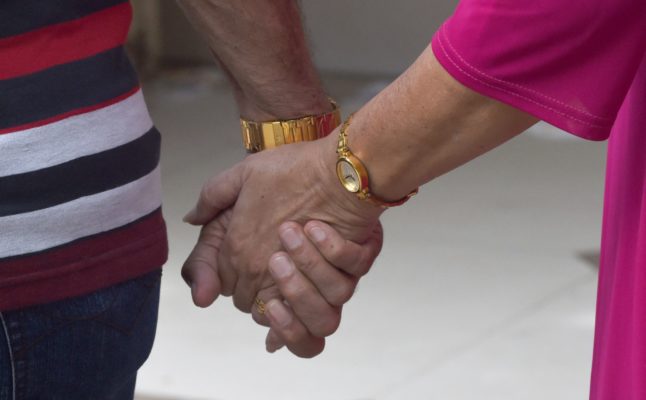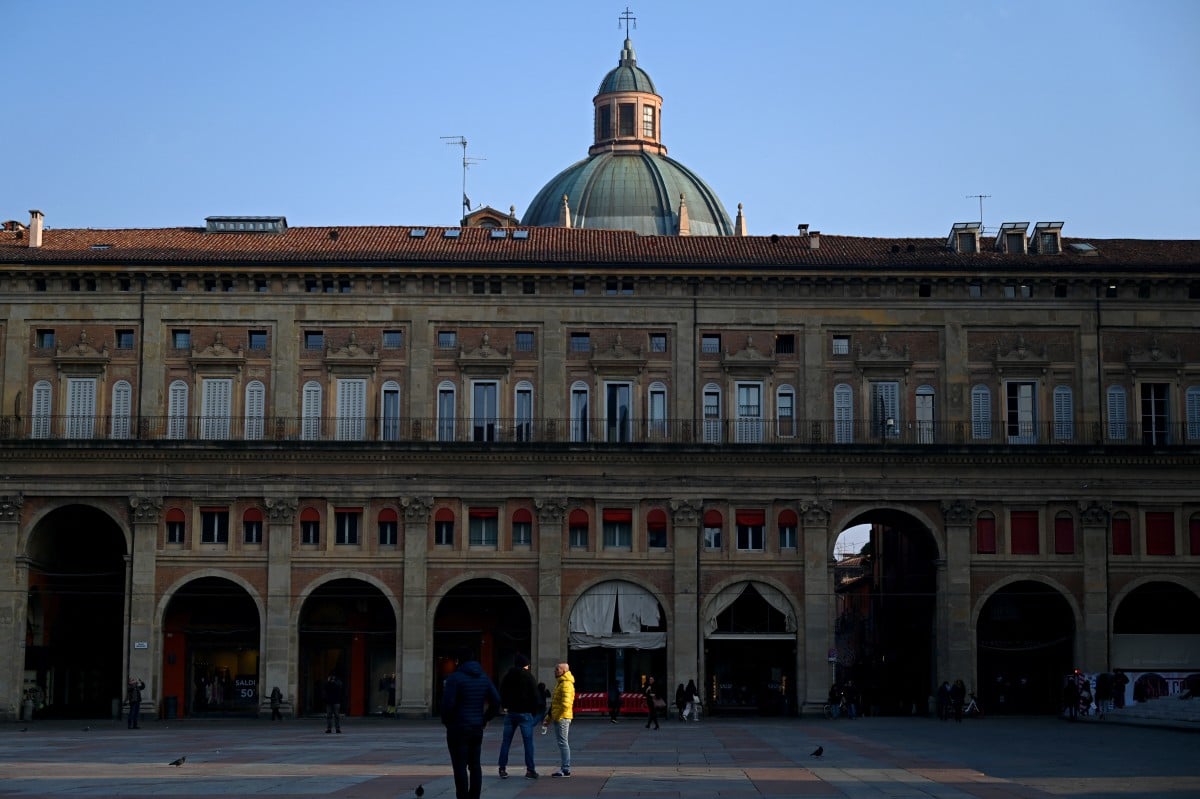New criteria for regional restrictions
From August 1st, Italy has a new way of classifying regions into colour-coded risk zones.
From now on Italy will no longer decide restrictions based on the incidence rate of Covid-19 – which has risen significantly in recent weeks – but on levels of hospital occupancy, which for now remains low.
READ ALSO: How Italy plans to avoid tightening Covid restrictions this summer despite rising cases
The change is designed to keep as much of the country as possible a low-risk ‘white zone’ throughout the summer, with minimal restrictions in place.
Another chance to get a bonus for buying a new car
The Italian government launches another round of ‘ecobonuses’ this month to tempt residents to replace older cars with less polluting models.
You could benefit from up to €2,000 off the price tag if you trade in a pre-2011 model for one that produces less than 60g of CO2 per km – and while the maximum bonus is smaller than in previous editions, it’s now available if you’re buying a used car, not just a brand-new one.
Applications opened on August 2nd for passenger cars, and from August 5th for commercial and specialised vehicles. Click here to learn more.
READ ALSO: ‘How we used a government bonus to buy an electric car in Italy’

‘Green pass’ required to access indoor restaurants, museums and more
Italy extends the use of its health passport from Friday, August 6th: from then on, proof of vaccination, recovery or a recent negative coronavirus test will be required to access indoor seating at bars and restaurants, museums, concerts, theatres, theme parks, spas and more.
EXPLAINED: When, where and why will you need a Covid health passport in Italy?
If you were vaccinated, treated or tested for Covid-19 in Italy, find out how to download your health pass here.
Remember, if you’re visiting Italy from another part of the EU or one of these five countries outside the bloc, you can show your certificates from home without having to request an Italian version.
If you’re visiting from elsewhere and require a green pass, you’ll need to get a coronavirus test (or several): find out how to get tested here, and learn more about using the result to download a health pass here.
Italy takes a national summer holiday
August 15th is Ferragosto, the public holiday that marks the height of the Italian summer.
People who live in Italy typically spend it away from home – so expect to finds streets empty and businesses closed if you stay in the city, and beaches and hotels packed if you join the exodus to the coast.

This year Ferragosto falls on a Sunday, so sadly there’s no extra day off – though anyone who can afford it has probably been on holiday for several weeks already.
Find out more about the holiday and its history here.
Tax deadlines
A host of tax deadlines come up in August, mostly concentrated between the 20th and the 31st.
Among the payments due are certain instalments of VAT from self-employed workers and income tax from workers with an employer. Meanwhile, applications for an exemption from Italy’s TV licence fee by low-income over-75s must be submitted by August 20th, and taxpayers who underpaid and need to top up their annual balance have until August 31st.
Find Italy’s official tax calendar here – and if in doubt, ask an accountant.
Trade in your old TV for a bonus
From August 23rd, you’ll be able to request the government’s ‘TV bonus’: up to €100 off the price of a new-generation set when you trade in an old one.
The idea is to help residents with the cost of replacing older TV when Italy phases out the current transmission signal and switches over to DVB-T2 by summer 2022. Find out more details here.
Summer sales end
The official discount period ends between mid- and late August in most Italian regions, making it your last chance to go sales shopping until winter price cuts begin in January.
A handful of regions are allowing sales to continue into September, however, after shops were given special permission to shift the dates to make up for prolonged closures earlier this year. Find out when sales end in your region here.

Decision due on compulsory vaccination for teachers
Before the new school year begins, the government will assess how many teachers have been vaccinated so far and whether shots should be made mandatory to ensure maximum coverage.
READ ALSO: How big is Italy’s anti-vax movement really?
Regional authorities are due to submit their vaccination rates for school staff to the national Covid-19 emergency commission by August 20th: if they’re below 90 percent, the commission will consider ordering unvaccinated staff to get their shots.
By July 30th, around 15 percent of school employees still had not had either dose of a vaccine.
Italian football season kicks off
Sports fans left bereft after the Olympic Games end on August 8th won’t have long to wait: Italy’s 2021-22 Serie A season begins on August 21st.
Around 20 matches are scheduled over the last ten days of the month: find the fixtures here.
International travel restrictions up for review
Italy’s travel rules are up for review again on August 30th, when the current entry requirements imposing quarantine for certain countries and limiting entry from others are once more due to expire.
READ ALSO: Which countries can use a Covid health pass to avoid quarantine in Italy?
The UK, Australia, New Zealand and other non-EU countries allowed to visit Italy for tourism will be hoping that the Italian government drops its five-day quarantine for vaccinated and tested travellers, while people from India, Bangladesh and Sri Lanka are crossing their fingers that Italy introduces some exceptions to its strict ban on entry from their countries.
No changes are guaranteed, however, and would-be travellers should be warned that the Italian government may not announce its decision until shortly before the deadline. It’s wise not to book any non-refundable trips.




 Please whitelist us to continue reading.
Please whitelist us to continue reading.
Hello again! I have an American friend in Italy at this time 8/2/2021-8/10/2021 who has stated the his CDC card DID NOT work as the green pass after all. I was informed that although he traveled with his CDC card, he still had to obtain a green pass. His words were “to obtain a green pass is easy, just a hassle.” Do you have any information on this? I will be in Italy with parents sept 15th & if I can get things in order prior to trip, that would help!